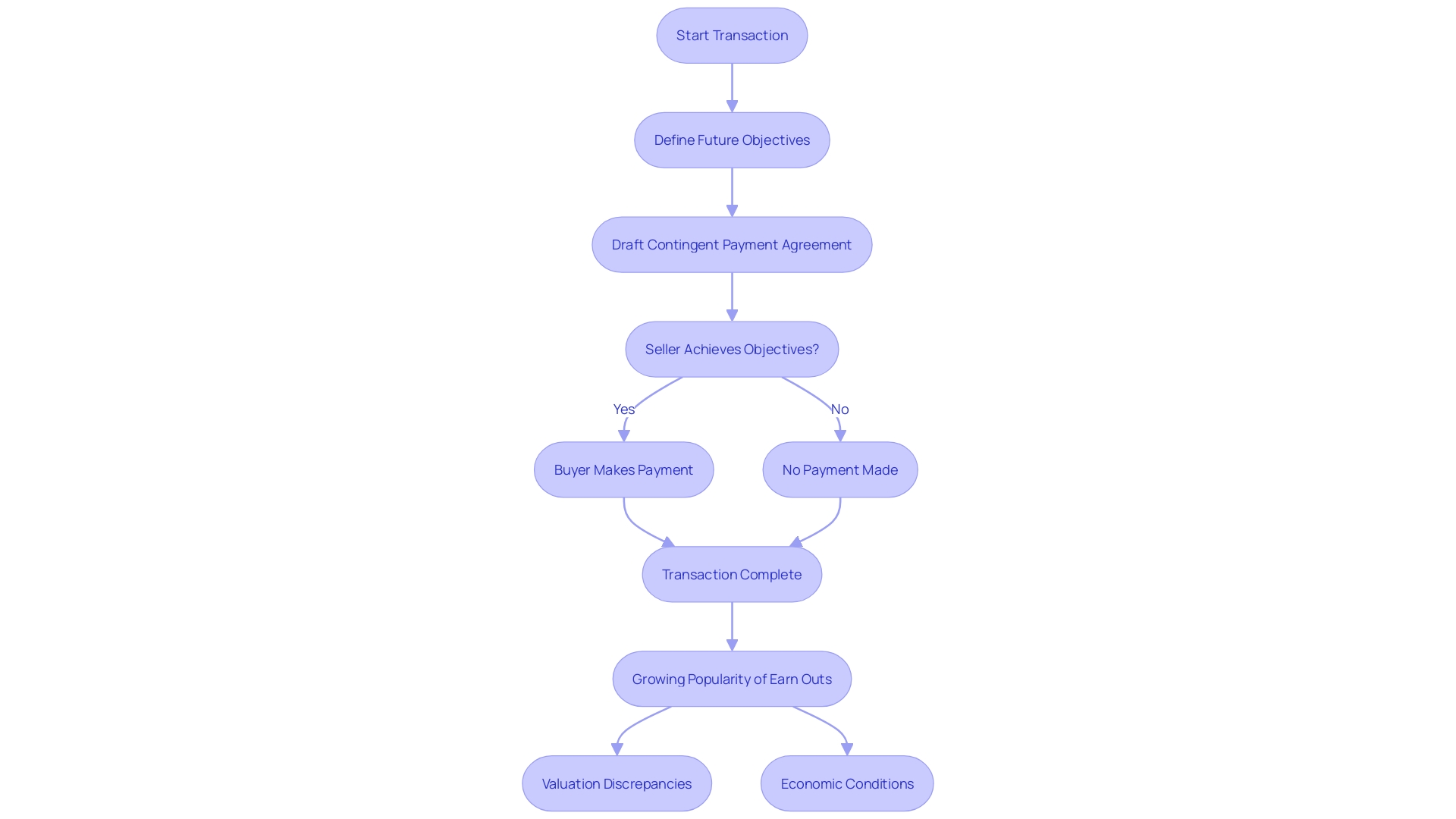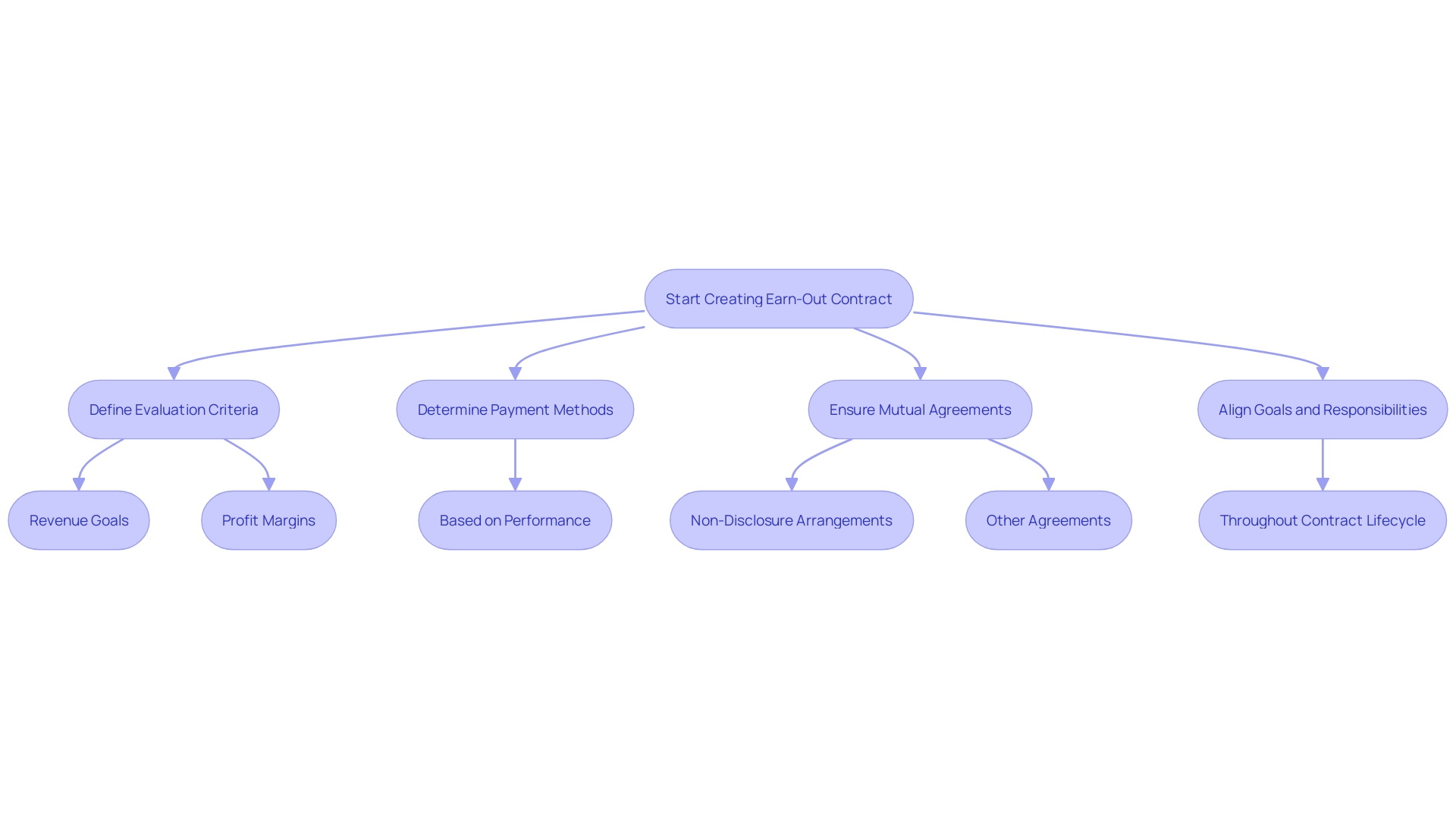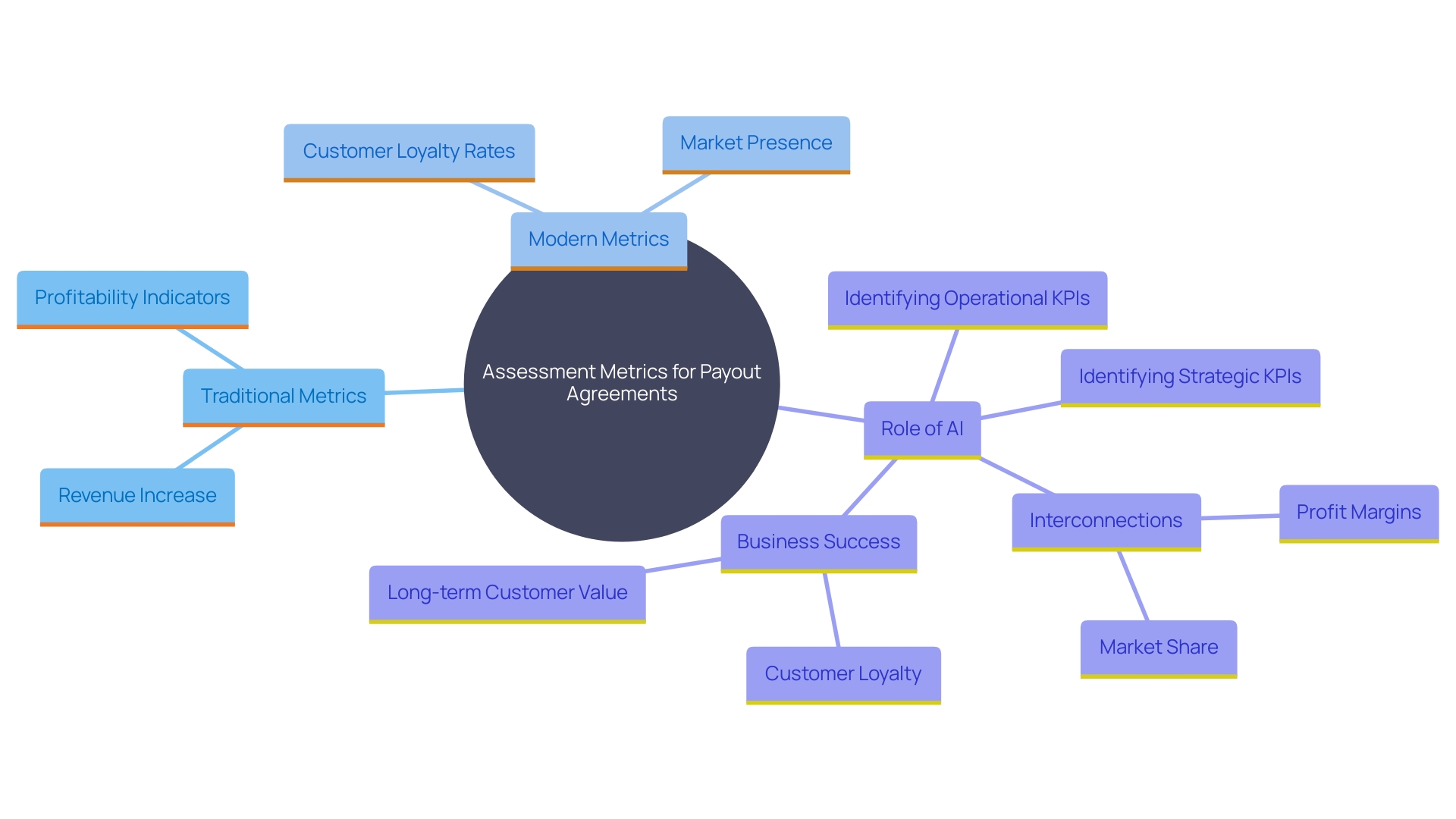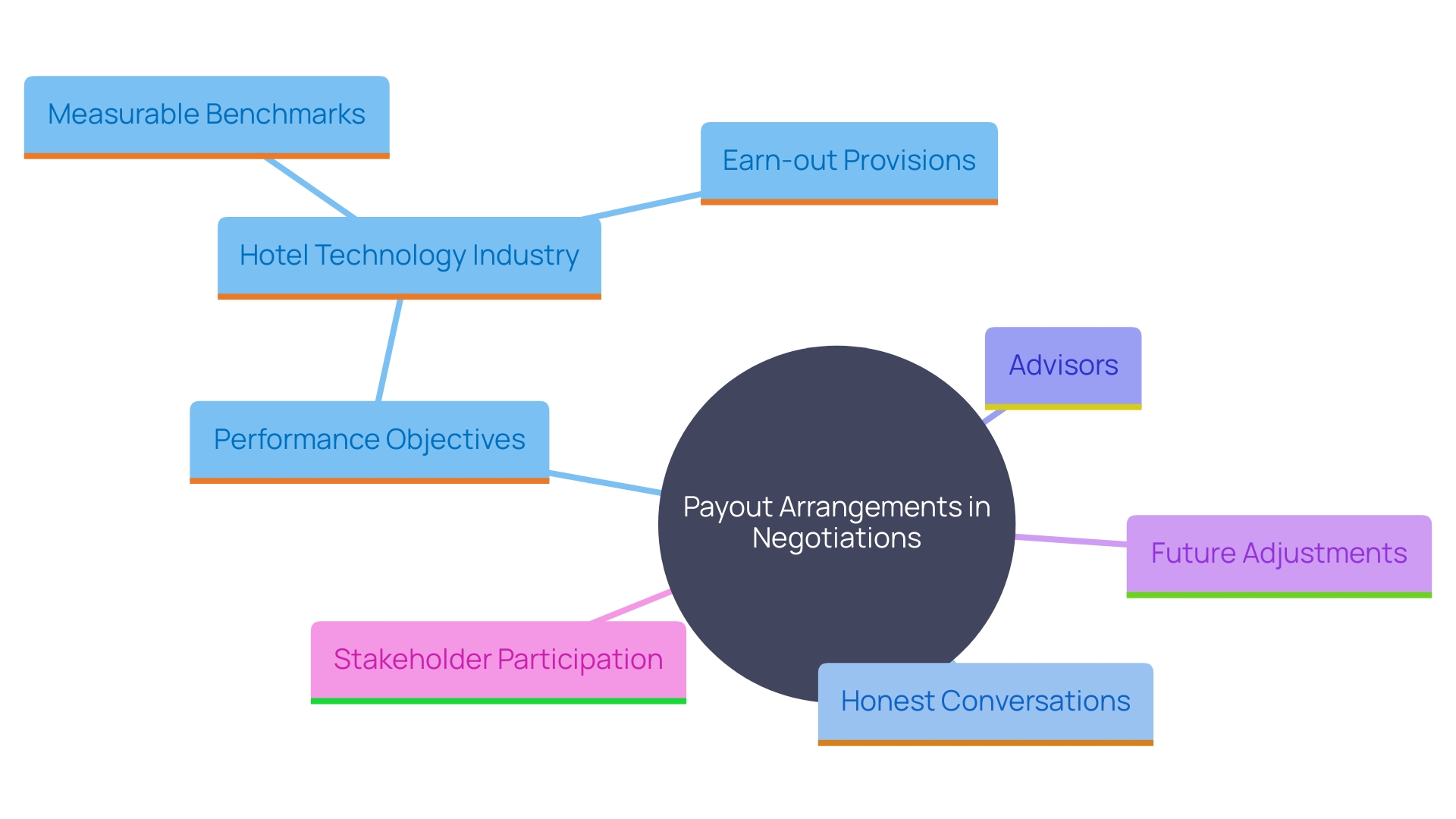Disclaimer: The content of this article is for informational and educational purposes only and does not necessarily reflect the views or opinions of Robbins Pellegrino or its partners. For qualified business brokerage advice, please contact us directly.
Introduction
In the changing realm of business sales and acquisitions the idea of an earn out has become a valuable strategy for aligning the goals of buyers and sellers in a meaningful way.In an earn out arrangement a portion of the sale price is dependent on the business meeting performance goals after the sale.This method not allows sellers to potentially earn extra payments based on the future success of the business but also helps reduce the buyers risk by tying a portion of the payment, to real performance results.
During economic times earn outs can be a practical way to close valuation differences and keep both sides dedicated to the long term success of the business.This piece examines the details of earn out agreements by looking at their components,milestones for success,typical obstacles and effective negotiation strategies.It ultimately emphasizes the importance of earn outs, in promoting mutually advantageous business deals.
What Is an Earn Out?
Payments contingent on future results are frequently employed in transactions as a tactic where a portion of the sale amount relies on the entity achieving specific objectives after the transaction has been finalized. This method enables sellers to possibly receive compensation based on how effectively the entity operates in the future and assists in aligning the aims of both purchasers and sellers. When it is challenging to determine a preliminary worth for an entity, a contingent payment can be an effective technique. Buyers can minimize their risk by linking a portion of the payment to how the business performs.This encourages sellers to stay committed to steering the business towards prosperity. Earn outs are increasingly popular in mergers and acquisitions as companies aim to narrow the gap in valuation, between what buyers are prepared to pay and what sellers value their businesses at. In particular the difference in value assessments played a role in causing the slowest year for strategic mergers and acquisitions in ten years according to a majority of participants in a recent survey. A setup, like this proves advantageous during economic conditions when funding expenses are elevated and the forthcoming worth of possible purchases is not as easily foreseeable.

Key Elements of an Earn Out Agreement
A standard earn out contract includes elements like the specific evaluation criteria that determine the additional payment sum required to be disbursed over a designated timeframe and the method by which this payout is computed. Typical success metrics may involve revenue goals and profit margins among financial standards. For instance a hotel introducing a guest directory system using, in room tablets could engage in a results oriented arrangement. The hotel won't have to pay upfront costs, for hardware; instead they'll pay the provider once they start making actual profits from operations. This method not makes the solution easier to afford but also ensures that both parties have a shared goal of achieving high quality and effective results.
The contract should detail how these measures will be supervised and confirmed to maintain openness and shared understanding between both parties involved. Doug Bend of Bend Law Group emphasizes the importance of a mutual non-disclosure arrangement as a precaution before revealing any sensitive information to protect the interests of all parties involved. Contracts centered on results are gaining popularity because their essence guarantees that both parties benefit from the arrangement. 'This agreement aids in forming a lasting professional relationship by incorporating the return on investment (ROI) into the collaboration, from the beginning to ensure favorable outcomes.'.

Types of Performance Metrics Used in Earn Outs
Selecting the suitable assessment metrics for a payout agreement relies on the traits of the company and the goals of both the purchaser and vendor involved. Typical metrics utilized include revenue increase and profitability indicators like earnings or EBITDA (Earnings Before Interest Taxes Depreciation and Amortization). Yet given todays e commerce scene recognizes customer loyalty rates and market presence as crucial metrics. Being acquainted with these metrics and utilizing them effectively can safeguard your client base's stability as well as your overall performance. For example the post acquisition value (PAU) is a measure that monitors and assesses the continued value a customer provides following their initial acquisition providing deeper insights, into customer behaviors and their lasting value.
Additionally, it is becoming increasingly important for artificial intelligence to contribute to the identification of strategic and operational KPIs. AI possesses the capability to analyze data with a level of accuracy that exceeds current abilities. This facilitates the discovery of insights that can revolutionize business strategies and perspectives. This methodology not only assists in adapting to changes in the market but also fosters mutually beneficial long-term business relationships. As competition intensifies and market conditions evolve, it is essential to choose metrics that genuinely reflect the potential of the business and align the expectations of both parties. This is crucial for establishing a compensation framework.

Common Issues in Earn Out Agreements
Although performance-based payouts can provide advantages by closing valuation differences and aligning interests between parties, they do pose certain difficulties of their own. A key concern is the risk of disagreements arising over performance measures. As highlighted by Christian Atzler, a partner at Baker McKenzie specializing in mergers and acquisitions ; "It's crucial to establish communication about who the main stakeholders in the company being acquired are and to reach a consensus, with relevant external entities." The absence of communication may result in differing opinions regarding how success is gauged after an acquisition has been made and operational adjustments have been implemented.
Assessing success precisely poses an additional challenge in business agreements involving outcomes as it is essential to set quantifiable objectives to avoid any misunderstanding or ambiguity stemming from them. For instance, Zillow Group included a payout clause in its acquisition of Follow Up Boss to connect the expectations of the purchaser and vendor. 'In a report by Gabby Jones of Bloomberg News, it was mentioned that corporate mergers and acquisitions have been encountering hurdles due to instabilities which has led to the increased dependence on payouts as a practical resolution.'.
Vendors might also have concerns regarding the purchasers dedication to meeting the earn out objectives particularly if they are no longer active in the company. This worry aligns with market practices where firms are introducing "stay or pay" arrangements to retain employees. While these clauses may occasionally blend cost recovery with repercussions for leaving the company they highlight the significance of upholding stability and staying committed, to agreed upon targets.
Effective communication and detailed contracts play a role in managing these potential risks. By setting standards and fostering open communication channels between both parties they can collaborate towards achieving shared success. This strategy not guarantees the realization of the deals benefits but also nurtures lasting and favorable business connections, similar, to those found in prosperous mergers and acquisitions.
Best Practices for Negotiating an Earn Out
When talking about a payout arrangement, it's important to set achievable performance objectives within a sensible time frame that can be accepted by both sides engaged in the negotiation process. Having honest conversations is key to gaining insight into each others viewpoints and addressing any concerns that may arise during the negotiation phase. Bringing in advisors or legal experts to assist in structuring the agreement ensures fairness and thoroughness in the overall process. Considering future changes in operational activities warrants including provisions that allow for adjustments to the earn-out arrangement if significant shifts occur within the company.
By integrating data driven methods into these discussions can improve interaction and openness which can result in favorable results. For example using comparison and creating measurable benchmarks can enhance the efficiency of the procedure. According to Christian Atzler, an M&A partner at Baker McKenzie it is advised not to overlook the involvement of parties. Involving these stakeholders promotes mutually advantageous outcomes and nurtures lasting positive relationships in commerce.
In the hotel technology industry, as an illustration of a performance driven agreement; A hotel technology supplier could set up a deal where payments are tied to the outcomes of their tech solutions like improved guest satisfaction or higher revenue figures.This setup guarantees that both sides gain from the deal and are driven to meet the agreed upon performance goals.
Grant Thornton data shows that 40 percent of transactions include an earn out provision – a clear sign of its widespread usage in business deals across industries with rapid growth potential and uncertain revenue streams and profits levels. Being mindful of these factors can help you handle earn out discussions, with ease and efficiency.

Conclusion
Earn outs are a method in business sales that help align the goals of buyers and sellers effectively by linking a portion of the sale price to the future performance of the business entity involved in the deal This approach encourages sellers to maintain the businesss success and reduces risks for buyers Simultaneously earn outs provide a viable solution, amidst the intricate nature of mergers and acquisitions by bridging valuation differences and promoting a lasting dedication to business expansion
Important elements of an earn out contract are crucial for achieving results. Such as performance standards and clear evaluation criteria that aid in assessing progress effectively and fostering cooperation between involved parties seamlessly through open communication channels. Selecting metrics and ensuring transparency with regards to the assessment process enables both sides to handle any obstacles that may arise and promote a harmonious working atmosphere for mutual benefit. Moreover the utilization of data driven approaches and active engagement of stakeholders can significantly boost the efficiency of such agreements by ensuring that all parties share a common vision, towards achieving their objectives.
Dealing with earn outs can be tricky due to disagreements on performance evaluations; however open communication and clear agreements can ease these challenges․ Focusing on cooperation and common goals not only enhances deal success but also sets the foundation for long lasting business partnerships․ With the increasing adoption of earn outs in transactions․ Employ negotiation practices and well defined agreements to enable stakeholders to maximize their opportunities․ This will pave the way, for thriving futures in the constantly changing business world․




